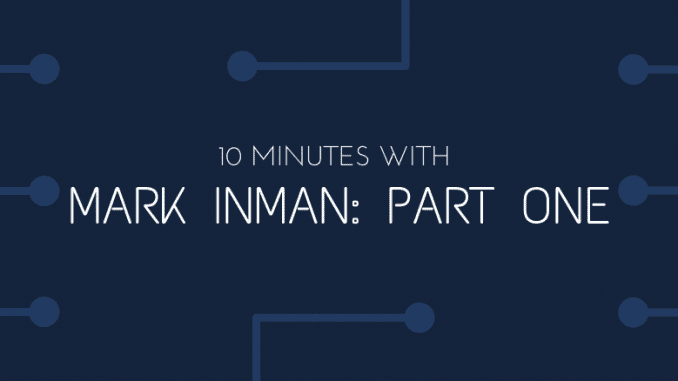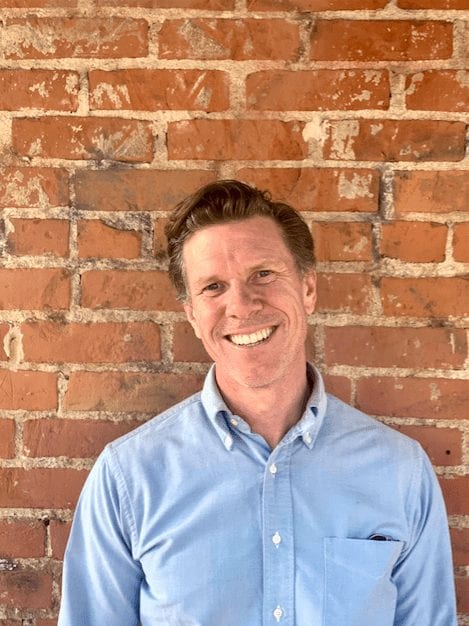
We talk to Sustainable Harvest’s new director of growth about his work in organic coffee and farm sustainability over the last 25 years.
BY KATRINA YENTCH
BARISTA MAGAZINE ONLINE
For Mark Inman, at the end of the day, coffee will always ultimately be an agricultural product. This mindset has fueled his passion and work for coffee sustainability throughout his 25-year-long career in coffee, especially within the organic sector of sustainability. Originally from a wine background, Mark took an interest in coffee in the 1980s after seeing how many similarities there were between the two products. “You know there’s so much overlap that I felt even back in the ’80s that we had got saturated in wine,” he recalls. “Coffee seemed to me like you could take your application and apply it to a field that is like making wine in the 1800s.”
Since then, Mark has consistently been tying his work in both industries together through his emphasis on organic and sustainable agriculture. As the new director of growth at green coffee importer Sustainable Harvest, Mark feels the position is a return to his early days in the industry, working with another company whose relationship coffee model aligns with his own values in agricultural sustainability at the farm level. Whether it was by bringing the World Barista Championship (WBC) to a coffee-growing country in Colombia as the Specialty Coffee Association of America (SCAA) president in 2008 or being one of the first organic coffee-oriented roasters with Taylor Maid Farms—Mark’s work has always been dedicated to emphasizing coffee as an agricultural product. We talked to the former Roasters Guild chair member and IWCA board member about how he’s seen coffee change over the years, and how, more than ever, sustainability needs to be at the forefront of any innovative changes in coffee.
Note: Some answers have been shortened for brevity and clarity.

Katrina Yentch: Congratulations on your new position with Sustainable Harvest! What are some things you’re looking to accomplish personally for yourself within this role and accomplish as goals for the company?
Mark Inman: Well, for me personally, in a lot of ways joining Sustainable Harvest is like going back home. You know, the company I started when I was 22 years old was based on agriculture. I had a working organic farm where we used to teach ag-gag and sustainable ag and permaculture-type growing theories on a working farm here in California. … That is in line with what Sustainable Harvest has always been about. When I sold the company I got into, I learned the import side of trading and coffee, and that was with larger companies that didn’t have that focus. That had always been very challenging for me personally because my head and my heart have always been in sustainable ag, and now I get to go back to that—which is for me personally very thrilling.
What I hope to accomplish is that I believe, more than ever, issues like sustainable agriculture, equity with growers and farmers, farming communities, how we deal with the supply side of many products, really shining a light and focusing on how important as a coffee company it is, are paid attention to today.
Roasters have to start thinking beyond cup quality and coffee as a fashion accessory. And you know, it can’t be just about latte art. We have to start looking deeper, to really start focusing the end of my career on that type of thinking, as well as mentoring the next generation of coffee professional—which has always been a big part of my agenda. It’s why I was on the board of the SCAA for 10 years, why I became the chair of the WBC, (and) why I was part of the Roasters Guild, was to really work on mentoring the next generation of coffee professional to be a grower, roaster, barista. That’s a major interest of mine as well.
You’ve had a number of roles in a lot of different sectors in coffee. What’s been your favorite or most rewarding?
I think in the early days with Taylor Maid, it was the fact that we were a farm-based company focused from the farm forward, and that was a unique angle that nobody else in coffee really copied. When I would go to origin, most of my colleagues in various different companies would run to the cupping room and I would run to the farm and see how the farm is laid out, see how the soils were built, see why they chose the various varieties, and to me that would determine how the cup quality would be. To me, that was an angle that you basically do in wine that I still feel is very unique.
I think (another rewarding experience was) being on the board of SCAA as the president, focusing on farmer issues the year I was the president at the Minneapolis show in 2008. It was a producer-focused show and we had the best agronomists in the world speak there, and it was about looking at the farm as a micro-enterprise, and the idea of, “Let’s quit fantasizing at the poverty of farmers and let’s talk to them the same way that we talk to baristas about how you’re gonna get into your own shop and how you have to think about designing your shop and the way you think about doing business at your shop.” You have a farm and that farm is a small business, and this is how it should be approached instead of, “You poor farmer, let’s support you, let’s give you charity.” No, let’s treat them like business professionals, which was pretty impactful for me.
And finally, well all of these things kind of bleed together, with being the chair of the WBC, and being very insistent on having the world’s first barista championship at origin, which in cases for myself was in Bogotá, Colombia (in 2011), which had not been done before. Europe and the United States already understand the movement of the barista, so to keep going back and forth between them is becoming boring. We have to bring (in) Colombia, Brazil, Mexico… these countries are already developing a coffee culture and we need to support that by hosting a global competition there. You saw an explosion of the café and roastery scene in Colombia. Those three pillars are the ones that meant the most to me in my career, but they all had a common theme, which is that coffee at the end of the day is agriculture. It’s an agriculturally based business that can truly produce art. But we have to have the right tools to do that. We have to support it in the right way. And those kinds of focuses are the ways that we support the changes within the industry.
We will continue this interview tomorrow.

